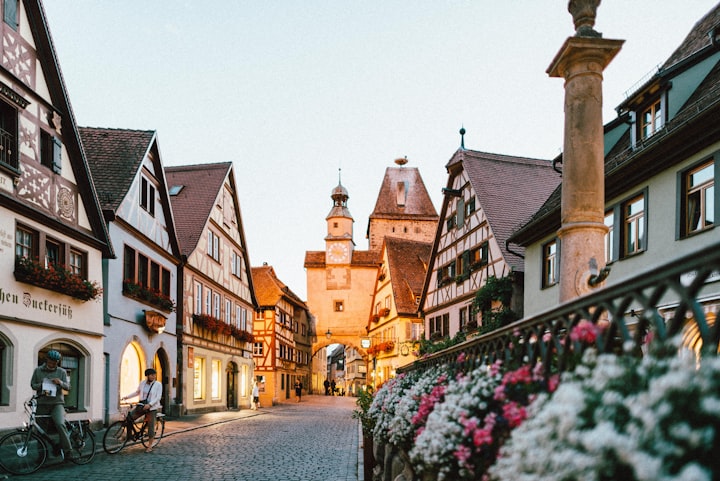Some of the things Europeans do that leave Americans speechless
Things you need to Know

If you are embarking on a journey across the Atlantic, it's essential to be prepared for more than just jet lag. Depending on your destination in Europe, life may present some unique aspects that differ from what you're accustomed to. Therefore, conducting thorough research before your travels is advisable.
One notable distinction you might encounter is the limited prevalence of central air conditioning in Europe. Unlike many places in the United States, it's not a given that flats, offices, or even restaurants will have AC units. Europeans often rely on open windows to create a cooling breeze. However, larger establishments like grocery stores and malls usually maintain adequate ventilation.

Another interesting aspect is the availability of free water in European restaurants, which may not be a universal practice as it is in the US. While you may receive a stylish glass bottle, there's a chance you'll find it itemized on your bill, especially if you explicitly request water. Additionally, specifying whether you prefer still or sparkling water is advisable.
European dining etiquette might differ from what you're accustomed to, so it's helpful to be aware of these nuances. Tipping practices, for instance, vary across countries, with some places incorporating service charges into the bill. Familiarizing yourself with local customs can enhance your overall experience.
Public transportation is often a preferred mode of travel in Europe, and cities are well-connected through extensive networks. Researching and understanding the local transport systems can save you time and effort during your journey.
Cultural diversity is a hallmark of Europe, and you may encounter various languages and traditions. Learning a few basic phrases in the local language can go a long way in facilitating communication and showing respect .

Healthcare systems vary across European countries, and it's crucial to be aware of the medical services available to you as a traveler. Familiarize yourself with emergency numbers, local hospitals, and any necessary insurance coverage to ensure a smooth experience in case of unforeseen circumstances.
Europe boasts a rich history, and each country has its own unique cultural heritage. Exploring museums, historical sites, and architectural wonders can provide a deeper understanding and appreciation of the places you visit.

While in Europe, you'll likely encounter a diverse range of currencies. Understanding the local currency and having some cash on hand can be beneficial, especially in more remote areas where card payments may not be as widely accepted.
Lastly, embracing the slower pace of life in some European regions can enhance your overall experience. Enjoying leisurely meals, strolls through picturesque streets, and immersing yourself in the local way of life can make your journey across the Atlantic truly memorable. Just
Preparing for a trip across the Atlantic involves more than just jet lag. Researching cultural differences and practicalities in Europe is crucial, including adapting to limited air conditioning, differing water service norms, leisurely dining customs, transportation adjustments, language barriers, tipping practices, and embracing "slow travel" for a richer experience.
In conclusion, embarking on a journey across the Atlantic demands preparation beyond anticipating jet lag. Researching cultural nuances and practical differences in European life is essential. Notably, the scarcity of air conditioning in many European settings, contrasting water service practices, and leisurely dining customs are key aspects to consider. Additionally, adapting to public transportation and navigating language barriers require flexibility and preparedness. Understanding tipping customs and embracing the concept of "slow travel" can enhance the overall experience. By immersing oneself in local culture, exploring off-the-beaten-path destinations, and savoring authentic cuisine, travelers can forge meaningful connections and create lasting memories. Ultimately, a well-informed approach ensures a smoother transition and a more enriching experience when venturing across the Atlantic to explore the diverse landscapes and cultures of Europe.






Comments
There are no comments for this story
Be the first to respond and start the conversation.